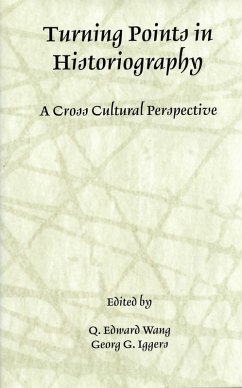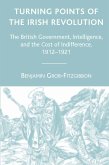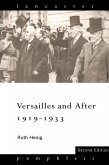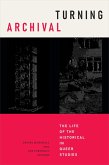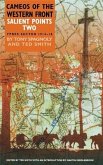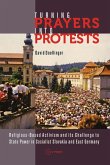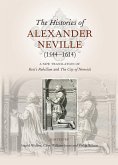An examination of how historical thinking has changed in recent years, through a comparison between Eastern and Western epochs.
Until recently almost all histories of historiography have focused on national developments or at best introduced a comparative note from a limited Western perspective. Only in the last few years have there been serious attempts to transcend these borders. The present volume examines turning points in historical thought in a variety of cultures. The essays in the first half of the book deal with fundamental reorientations in historical thinking in the pre-modern period since Antiquity, specifically in ancient Greece and China and in medieval Christian Europe, the Islamic world and again China. The essays all proceed from the premise that historical thought in none of these cultures was static but underwent profound changes over time.
The essays in the second part deal with historical writing beginning with the professionalization of history in the nineteenth century. National history researched and composed around a master narrative constituted a major turning point in this period. Although the new paradigm emerged in the West, it was broadly accepted by historians throughout the world.in the twentieth century. Individual chapters deal with conceptions of scientific history in the West, a comparison of national histories in Japan, France, and the United States, and the invention of Chinese, African, and Indian national histories; finally the critiquesof the modern paradigm in postmodernist and postcolonial theory and a consideration of the shortcomings of these critiques.
Georg Iggers is Professor Emeritus of History at the State University of New York at Buffalo; Q. Edward Wang is Associate Professor of History at Rowan University.
Until recently almost all histories of historiography have focused on national developments or at best introduced a comparative note from a limited Western perspective. Only in the last few years have there been serious attempts to transcend these borders. The present volume examines turning points in historical thought in a variety of cultures. The essays in the first half of the book deal with fundamental reorientations in historical thinking in the pre-modern period since Antiquity, specifically in ancient Greece and China and in medieval Christian Europe, the Islamic world and again China. The essays all proceed from the premise that historical thought in none of these cultures was static but underwent profound changes over time.
The essays in the second part deal with historical writing beginning with the professionalization of history in the nineteenth century. National history researched and composed around a master narrative constituted a major turning point in this period. Although the new paradigm emerged in the West, it was broadly accepted by historians throughout the world.in the twentieth century. Individual chapters deal with conceptions of scientific history in the West, a comparison of national histories in Japan, France, and the United States, and the invention of Chinese, African, and Indian national histories; finally the critiquesof the modern paradigm in postmodernist and postcolonial theory and a consideration of the shortcomings of these critiques.
Georg Iggers is Professor Emeritus of History at the State University of New York at Buffalo; Q. Edward Wang is Associate Professor of History at Rowan University.
Dieser Download kann aus rechtlichen Gründen nur mit Rechnungsadresse in A, D ausgeliefert werden.

